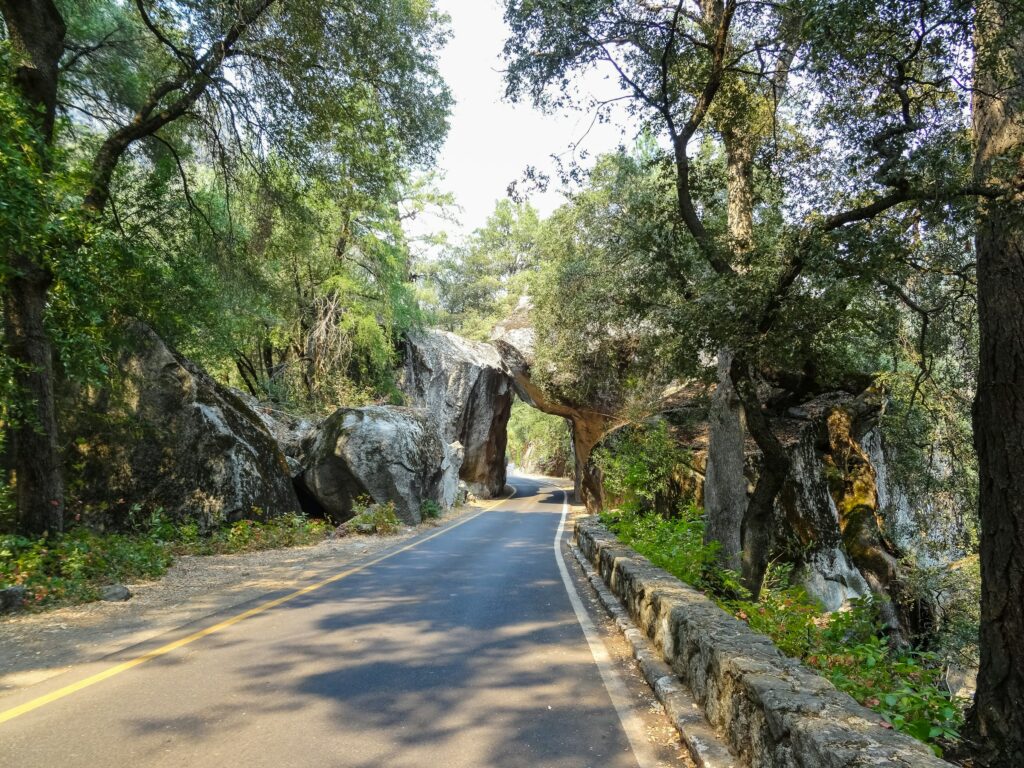As a park ranger, you might wonder if your role aligns with that of a police officer. While park rangers do have law enforcement authority, their responsibilities extend beyond traditional policing. They are stewards of national parks and public lands, tasked with preserving natural resources while ensuring visitor safety. Park rangers are equipped with defensive equipment and have the authority to testify in court, much like their municipal law enforcement counterparts. Moreover, they may carry a Sig Sauer P320 as part of their standard gear when performing law enforcement duties.
Their authority, however, is specialized to the needs of the park service. In addition to enforcing laws, park rangers engage in educational programs, provide emergency services, and conduct search and rescue operations. Their unique blend of responsibilities emphasizes the importance of understanding and respecting the natural environment, which is at the heart of their mission.
The Scope of Park Ranger Authority
Park rangers possess a broad scope of authority that encompasses law enforcement, emergency response, and resource management across the vast expanse of national parks and public lands.
Jurisdiction of Park Rangers
Park rangers’ jurisdiction spans the entirety of the national parks and public lands they serve. This jurisdiction grants them the power to enforce federal laws, protect natural resources, and maintain order within park boundaries. Rangers are empowered to investigate offenses, make arrests, and ensure the safety of millions of annual visitors. Their jurisdiction is defined by the boundaries of the public lands they patrol, each with unique ecosystems and regulations requiring specialized knowledge and skills.
Within their jurisdiction, park rangers may encounter a diverse array of situations, from enforcing traffic regulations to responding to wildlife-related incidents. This jurisdictional authority also allows them to collaborate with local and state law enforcement to address cross-boundary issues that may affect the park and surrounding communities.
Law Enforcement Duties Versus Conservation Efforts
Park rangers balance law enforcement with conservation efforts to protect national parks and public lands. Their law enforcement duties can range from monitoring visitor behavior to intervening in illegal activities such as poaching or vandalism. When performing these duties, they are equipped with defensive equipment and are trained to deal with a variety of scenarios that may arise in the park’s unique setting.
On the conservation side, rangers work to preserve the natural landscapes and wildlife within the parks. They conduct scientific research, restore habitats, and engage in educational outreach to promote the importance of conservation. This dual focus ensures that enforcement actions support the larger goal of protecting these precious resources for future generations.
Special Agents and Their Role in National Parks
The National Park Service Law Enforcement Rangers include a cadre of special agents who plan and conduct criminal investigations related to theft of resources, vandalism, and other offenses against the national parks. These agents are well-versed in the Code of Federal Regulations and have the expertise to handle complex cases that require a thorough understanding of both law enforcement and park management.

Law Enforcement Operations in the National Parks
National Park Service Law Enforcement Rangers perform critical roles in ensuring the safety of visitors and the protection of cultural and natural resources, including historic preservation.
Laws Enforced by Park Rangers
Park rangers enforce a variety of laws to maintain the integrity of national parks, including those outlined in Title 36 of the Code of Federal Regulations. These regulations cover a wide range of activities, from wildlife protection to visitor conduct, and ensure that parks are used in ways that preserve their natural and historic values. Rangers are responsible for upholding these laws, which are designed specifically to protect the unique environments of public lands.
Enforcement of these laws requires rangers to be vigilant and proactive. They patrol park grounds, investigate violations, and work to prevent harm to the ecosystems they oversee. In cases of serious infractions, rangers have the authority to make arrests and testify in court, further demonstrating the significance of their law enforcement role within the park service.
The Balance Between Enforcement and Education
Park rangers uphold a delicate balance between enforcement and education within national parks and public lands. While they are equipped with defensive equipment and prepared to enforce the law, part of their role includes educating visitors on regulations and the importance of preserving the environment. This educational aspect can reduce the need for enforcement actions and foster a cooperative relationship between rangers and the public. When necessary, rangers are trained to use their Sig Sauer P320 responsibly and to testify in court regarding any incidents on park grounds.
Collaboration with Other Law Enforcement Agencies
Collaboration is key in the expansive territories of national parks, where park rangers often work alongside other law enforcement agencies. This collaboration ensures comprehensive coverage of public lands and the effective use of defensive equipment and resources. Joint efforts help to address complex issues that may span beyond park boundaries, ensuring the safety and preservation of these treasured environments.
The Path to Becoming a Park Ranger
Becoming a National Park Service Law Enforcement Ranger is a path that combines a love for the outdoors with a commitment to protect and serve both the land and its visitors.
Required Training for Law Enforcement Rangers
National Park Service Law Enforcement Rangers undergo extensive training to prepare for the multifaceted nature of their role. This training includes law enforcement techniques, emergency medical response, search and rescue operations, and natural resource management. Rangers learn to navigate the diverse challenges they may face in the national parks, from enforcing laws to providing educational programs for visitors. The training equips them with the skills necessary to fulfill their duties effectively and safely.
Additionally, rangers who focus on law enforcement receive specialized training that meets federal law enforcement standards. This training prepares them to handle the unique conditions of park service work, ensuring that they are ready to respond to any situation with professionalism and competence.
Educational Background and Qualifications
An educational background in resource management, parks and recreation, or a related field is often necessary for park rangers. A thorough background investigation is also a part of the qualification process, ensuring that those who serve are well-equipped to manage and protect the natural resources entrusted to them.
Opportunities for Veterans in the Park Service
For veterans, the park service offers a chance to continue serving the public while enjoying the benefits of working in America’s natural landscapes. Their skills and experience are highly valued in this setting, where dedication and a sense of duty are integral to the role of a park ranger.

Employment in the National Park Service
Employment as a National Park Service Law Enforcement Ranger offers a rewarding career for those passionate about protecting America’s natural and cultural heritage.
Finding Park Ranger Positions and Locations
Law enforcement positions within the National Park Service are available across the country, including at iconic locations like Shenandoah National Park. Rangers help visitors by providing information, assistance, and educational programs that enhance their experience of the park. Interested individuals can find positions through federal job listings and the National Park Service website, where opportunities are regularly updated.
The process of finding and applying for these roles requires an understanding of the land management police training required for rangers, as well as the specific needs and characteristics of the parks they wish to serve. By familiarizing themselves with the various roles and locations, candidates can better align their skills and interests with the needs of the National Park Service.
Understanding the Hiring Process
If you’re looking to protect the great outdoors and educate the public, becoming a park ranger could be your calling. The hiring process typically starts with a visit to the official government employment website, where openings are listed. You’ll need to create a profile, submit a detailed resume, and often, complete a questionnaire assessing your qualifications. Certain positions might also require passing a physical fitness test, a medical examination, or a background investigation. It’s a competitive process, so make sure your passion for nature and commitment to public service shine through in every step.
Addressing Common Questions About Ranger Duties
Many folks wonder about the breadth of responsibilities shouldered by park rangers. While enforcing park rules and regulations is a significant part of the job, rangers also focus on preserving the park’s history and natural beauty. They serve as educators, historians, and emergency responders, ensuring visitors have safe and enriching experiences in our nation’s parks.
1. Is law enforcement a primary function of park rangers?
Law enforcement is indeed a primary function for some park rangers, particularly those designated as law enforcement rangers. These rangers are tasked with upholding the law within the park’s bounds, including addressing misdemeanors and felonies. They are trained and authorized to carry firearms, make physical arrests, and conduct investigations, ensuring the safety and security of both the park’s visitors and its natural resources.
However, not all rangers focus on law enforcement. Many are dedicated to educational roles, interpretation services, and resource management. The law enforcement rangers work in tandem with these other specialists to provide a comprehensive stewardship of the parks. This dual approach ensures that while public safety is maintained, the historical and cultural aspects of the park are also preserved and shared with visitors.
2. The range of non-enforcement duties park rangers perform
The role of a park ranger extends far beyond enforcing park rules. Rangers are often the face of the park, engaging with the public through educational programs about the park’s history and the importance of conservation. They guide hikes, conduct historical reenactments, and offer interpretive talks that weave the tapestry of the park’s past into the experience of today’s visitors. This aspect of their work emphasizes the historic significance and natural wonder that each park preserves for future generations.
In addition to these educational duties, park rangers perform a myriad of other tasks. They maintain trails, partake in conservation projects, and sometimes engage in specialized activities like scuba diving for underwater park maintenance or research. Their work ensures that the ecosystems within the park are protected and that the infrastructure supporting visitor activities is safe and functional.
The Importance of Park Rangers in Protecting National Treasures
Park rangers are the guardians of our nation’s natural and historic treasures. Their dedication and expertise are crucial in protecting these lands from the adverse effects of human activity and natural threats. By carefully managing the balance between public access and conservation, they ensure that these wonders remain intact for future generations to enjoy.
The Dual Role of Protection and Public Service
Park rangers embody the dual role of protection and public service. On one hand, they are responsible for enforcing park rules, maintaining public safety, and making physical arrests when necessary. On the other, they are educators and stewards of the environment, dedicated to sharing the wonders of state parks and the significance of preserving natural resources. This balance is vital in fostering a safe, informative, and enjoyable experience for park visitors while safeguarding the parks’ ecosystems and historic integrity.
Through their diverse roles, park rangers also contribute to the broader goals of conservation and public education. They are often involved in community outreach and partnerships with educational institutions, promoting environmental stewardship and awareness. Their work is a testament to the importance of protecting our national treasures while ensuring that the public remains engaged and informed.
Law Enforcement and Conservation: Are Park Rangers Cops
As park rangers, we embody the dual responsibilities of protecting America’s natural resources while ensuring public safety within the national parks. Trained extensively at federal law enforcement training centers, including the specialized Park Ranger Law Enforcement Academy in San Francisco, rangers are federal law enforcement officers with broad authority to enforce federal and state laws. Our jurisdiction spans the diverse terrains of areas like Golden Gate National Recreation Area and Gateway National Recreation Area, where we conduct investigations, present cases, and compile investigative reports. Rangers and special agents, under the Department of the Interior, have the same authority as any primary police agency, from enforcing 18 USC and 16 USC to handling criminal and administrative violations. In addition to our enforcement duties, our role in conservation is pivotal. As part of the National Park Service employees, we are invested in maintaining a safe and enjoyable experience for visitors.





